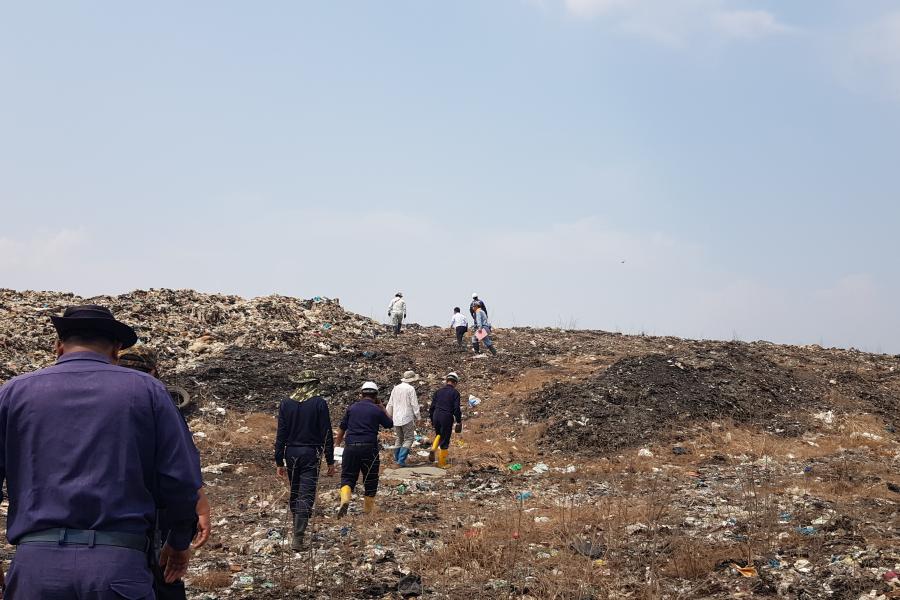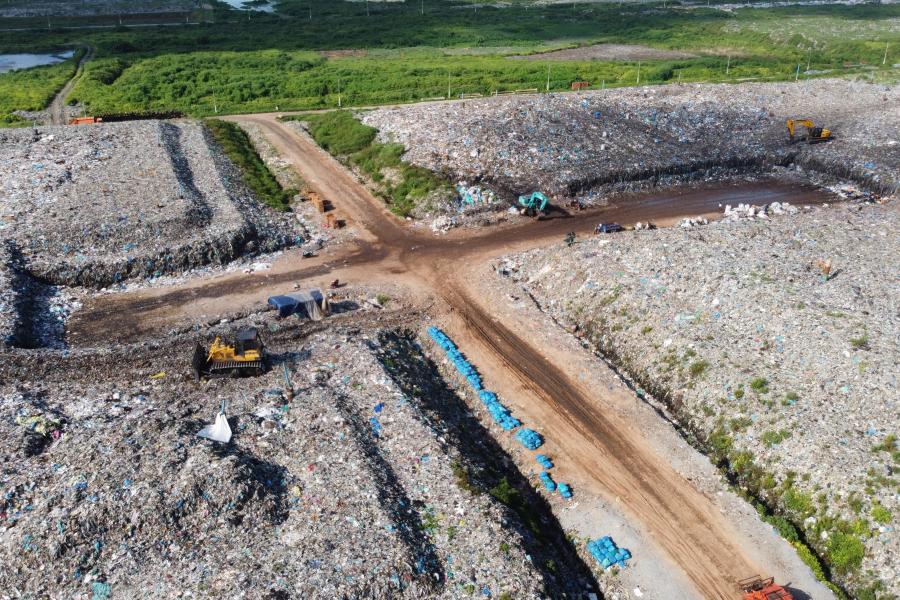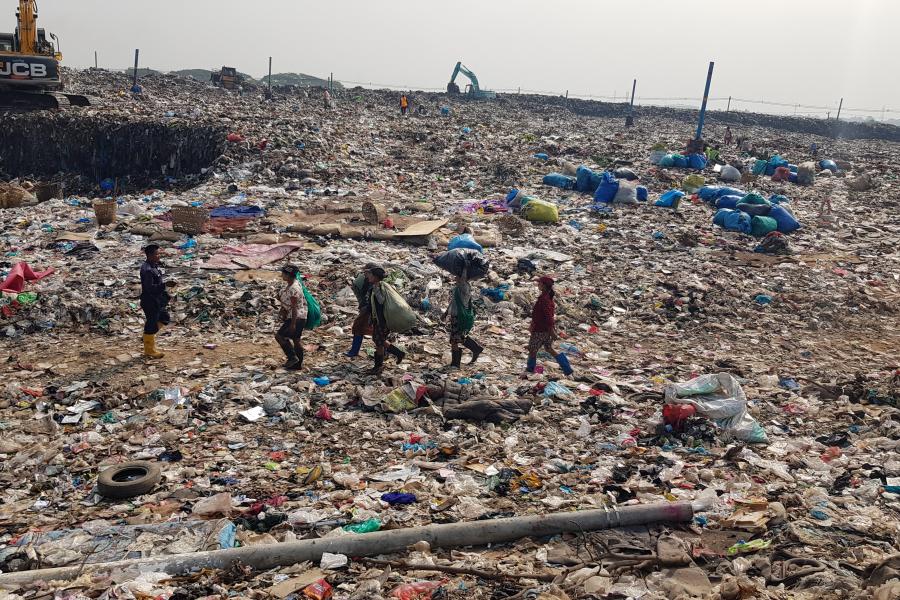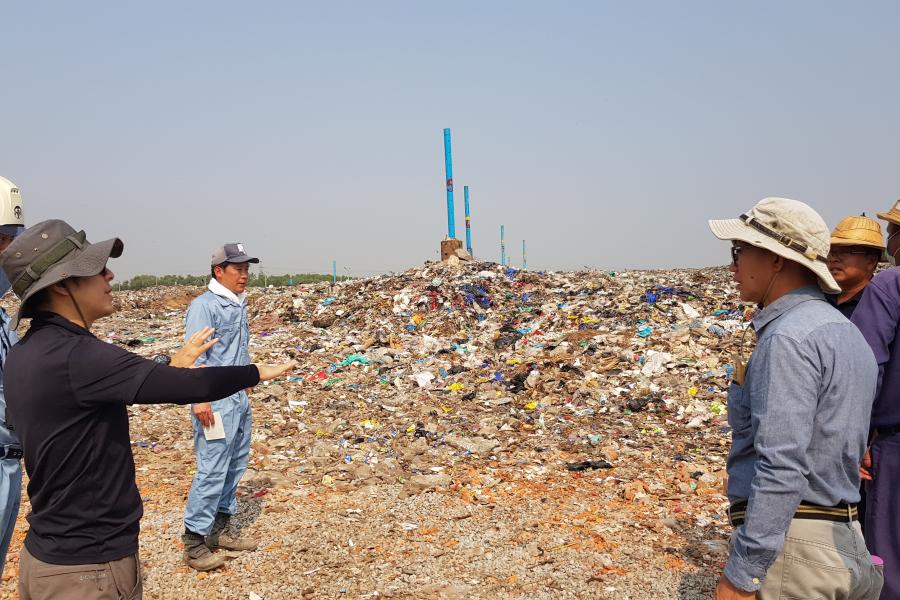UN-Habitat’s project improving solid waste management in Yangon City
UN-Habitat continues to support Yangon’s solid waste management system thereby ensuring people in the city continue to have a clean and liveable city.
The United Nations Human Settlement Programme (UN-Habitat) continues to support solid waste management (SWM) system, thereby ensuring regular and smooth collection, disposal, and processing of the solid waste even at the time of crisis so that the people in the city continue to have clean, green, environmentally sustainable, and livable city. The project has so far successfully rehabilitated the Htein Bin final disposal site and therefore reduced fire hazards, potential threats to the environment and nearby communities and improved the safety of the landfill workers and waste pickers. The project is benefiting the city to minimize long-term risks to human and environmental health.
The main challenge of the project was to conduct required construction work at the site and to protect the safety of the project staff amid the COVID-19 outbreak, which brought a wide range of travel, health, supply chain, and financial restrictions.

Yangon, the commercial capital country, is home to 5.1 million people and several important government institutions as well as commercial businesses. The city is currently undergoing rapid urbanization due to increased industrial and commercial investments, and infrastructural development. Along with the booming development, one of the challenges is the solid waste management of the city. The city with its rapid population growth and urbanization has also brought unprecedented volumes of solid waste that reach the dumpsite every day. Yangon produces daily waste of 2,000 to 3,000 tons. It is estimated that Yangon will reach middle-income status by 2036 and thus will generate an even higher rate of waste per capita in the coming years.
Htein Bin is the largest Final Disposal Site (FDS) in Yangon, and it collects around 1,500 tons of daily waste generated in Yangon city. The disposal site has approximately 60 hectares. This final disposal site is in Hlaing Thar Yar township where most of the internal migrants have chosen to live in dense informal settlements. Htein Bin final disposal site is an open landfill and the communities near solid waste dumping sites are exposed to several threats related to health and the environment, such as fire caused methane gas explosion, inhalation of toxic gases, flies and rodents, contamination of soil and groundwater, and damage to plants.

On 21 April 2018, a huge fire outbreak happened at Htein Bin final disposal site, and it spread quickly consuming more than half of the disposal site area. The blaze was fueled by trapped methane gases produced by decaying organic wastes. The fire lasted for three weeks and hundreds of personnel from the Myanmar Fire Services Department (MFSD), Yangon City Development Committee (YCDC), and Yangon Military Command were deployed to fight the fire.
Smoke from the nearly month-long fire resulted in a noticeable deterioration in air quality in the city of Yangon and affected around 148,000 people in the surrounding areas. Dozens of people, including children, were hospitalized with respiratory problems.
Speaking to The Guardian, residents near Htein Bin dump site said that the dump catches fire almost every year, but the blazes have never been this big or lasted so long. More than two dozen people were hospitalized for smoke inhalation and injuries linked to the fire between 20 April, when it broke out, and 3 May, when authorities finally declared the situation under control.

The entire dumping site was at high risk of reoccurrence of fire putting a serious threat to public health. Therefore, mitigating the future fire risk is urgent and important for the health and safety of the people living in the surrounding areas. The disposal site needed to improve its waste management system to be based on sustainable and affordable technology. With the technical support of UN-Habitat, Fukuoka city and Solid Waste Management Advisory Network (SWAN), and the financial support of the Government of Japan, UN-Habitat has been implementing SWM project in Yangon to ensure no further fire hazard and environmental hazard takes place by establishing resilient, safe, and sustainable waste management systems for Htein Bin FDS through the implementation of the Fukuoka Method of solid waste management. The fire of the magnitude of 2018 would have caused a threat to public health by causing serious respiratory problems among the population at a time of the COVID-19 outbreak in the city.

Under the project, 49 hectares of existing landfill sites are being rehabilitated by applying Fukuoka Method. This method leads to faster decomposition of waste material, improves the quality of the leachate, and reduces the emission of methane gas. Since the intervention of the project there has been no more fire outbreak after the rehabilitation of the existing wastes file.
The project has prevented 150,000 residents that live in the surrounding area of Htein Bin from health hazards and stopped Yangon city from the smoke pollution. In the long-term, the project contributes to the longevity of the dumpsite use, reduction of methane emission, and avoids the fire outbreak thereby helping to keep the city clean and livable.


